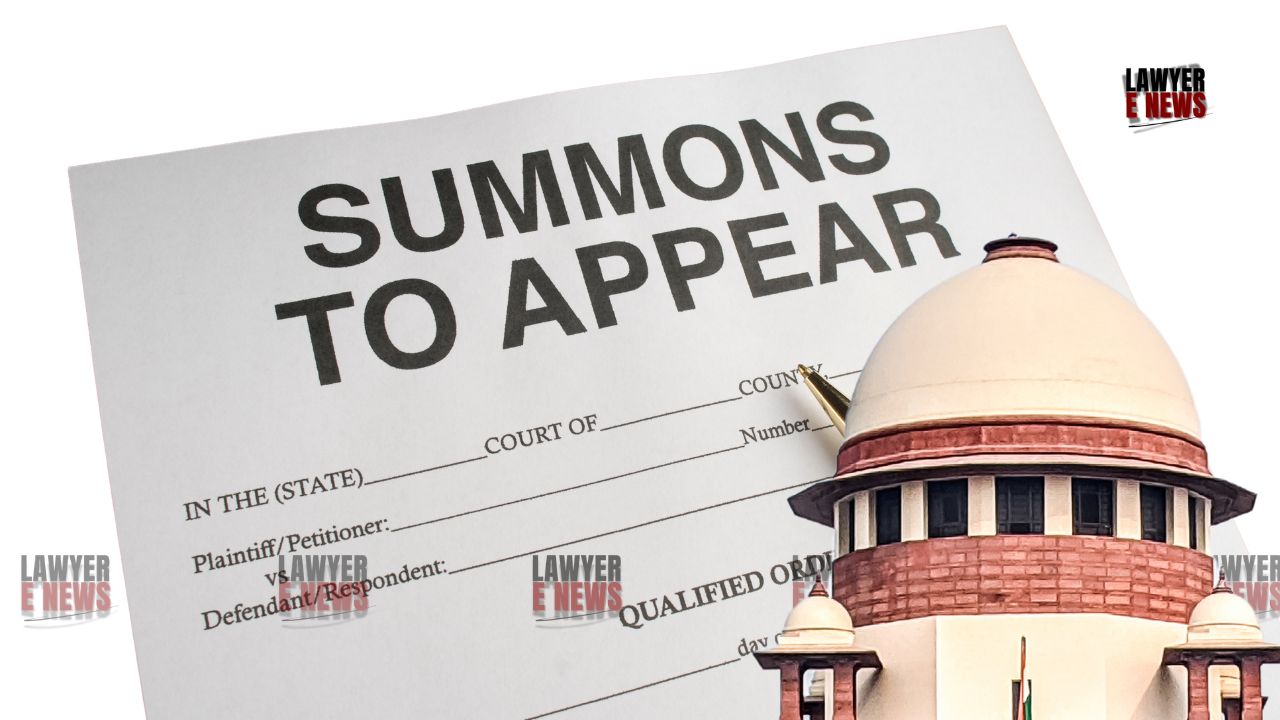-
by Admin
15 February 2026 5:35 AM



"Section 319 CrPC gives the court discretion to summon additional accused based on prima facie evidence, but it should not turn into a mini-trial," – Supreme Court
On October 18, 2024, the Supreme Court of India delivered a significant judgment in Asim Akhtar v. State of West Bengal & Anr., Criminal Appeal No. ______ of 2024 (arising out of SLP (Crl.) No. 12292 of 2022), clarifying the scope of Section 319 of the Code of Criminal Procedure (CrPC). The Court emphasized that while Section 319 CrPC empowers courts to summon additional accused if evidence points to their involvement, this process should not evolve into a mini-trial. The Supreme Court restored the acquittal of the appellant, Asim Akhtar, overturning a Calcutta High Court order that had remanded the case for further consideration of a Section 319 CrPC application.
Misinterpretation of Section 319 CrPC
The primary legal issue was whether the High Court was correct in setting aside the Trial Court’s acquittal and directing it to decide an application under Section 319 CrPC based solely on examination-in-chief. The High Court relied on the Constitution Bench ruling in Hardeep Singh v. State of Punjab [(2014) 3 SCC 92] but misinterpreted it as requiring the Trial Court to decide the application before allowing cross-examination.
The Supreme Court clarified that while examination-in-chief alone can provide sufficient grounds to invoke Section 319 CrPC, it does not mandate the court to do so without waiting for cross-examination if it believes that cross-examination is necessary for a fair assessment.
The case originated from an FIR lodged on October 11, 2017, alleging that Asim Akhtar attempted to kidnap the complainant (respondent no. 2). Charges were framed under Sections 366, 323, 506(II) of the Indian Penal Code (IPC) and Section 25(1)(B)(a) of the Arms Act, 1950. During the trial, the examination-in-chief of three key prosecution witnesses, including the complainant, was recorded. However, the witnesses repeatedly failed to appear for cross-examination despite multiple summons and adjournments.
The complainant then filed an application under Section 319 CrPC to summon the appellant’s parents as additional accused. The Trial Court decided to wait until the prosecution witnesses appeared for cross-examination before ruling on the Section 319 CrPC application. After the witnesses continued to be absent, the Trial Court closed the evidence and acquitted the appellant under Section 232 CrPC, citing "no evidence."
Supreme Court's Clarification on Section 319 CrPC
The Supreme Court found that the High Court had incorrectly interpreted Hardeep Singh. Justice Vikram Nath, delivering the judgment, clarified that Section 319 CrPC allows the Trial Court to summon additional accused based on examination-in-chief, but it does not require the court to do so without waiting for cross-examination. The Court emphasized that while examination-in-chief forms part of the evidence, the discretion to decide whether additional accused should be summoned lies with the Trial Court.
"No Mini-Trial Under Section 319 CrPC"
The Court stressed that the process of deciding whether to summon additional accused should not become a mini-trial. The Trial Court's role is not to conduct an in-depth evaluation of the entire case at the stage of a Section 319 CrPC application. Instead, the Court must form a prima facie view based on the evidence available. If the examination-in-chief is sufficient to indicate the involvement of additional accused, the Court can proceed to summon them. However, it can also choose to wait for cross-examination if it feels that a more complete picture of the evidence is needed.
The Court referred to the Constitution Bench decision in Hardeep Singh and observed:
"All that is required for the exercise of the power under Section 319 CrPC is that it must appear to the court that some other person, who is not facing trial, may also have been involved in the offence. The pre-requisite for the exercise of this power is similar to the prima facie view which the magistrate must come to in order to take cognizance of the offence."
This means the decision to summon additional accused can be based on a prima facie assessment of the examination-in-chief but should not evolve into a full-fledged evaluation of the case at that stage.
The Supreme Court also upheld the Trial Court’s decision to acquit the appellant under Section 232 CrPC. Since the prosecution witnesses failed to present themselves for cross-examination, their examination-in-chief was deemed inadmissible, and there was no valid evidence to continue the trial. The Court held that the Trial Court was justified in closing the evidence and acquitting the accused in a case of "no evidence."
In conclusion, the Supreme Court allowed the appeal, set aside the High Court’s order, and restored the acquittal of Asim Akhtar. The Court reiterated that while Section 319 CrPC provides the power to summon additional accused based on prima facie evidence, the Trial Court retains the discretion to decide whether to await cross-examination or proceed based solely on the examination-in-chief. Furthermore, the decision to invoke Section 319 CrPC should not turn into a mini-trial, which would undermine the procedural efficiency of criminal proceedings.
Date of Decision: October 18, 2024
Case Title: Asim Akhtar v. State of West Bengal & Anr.
